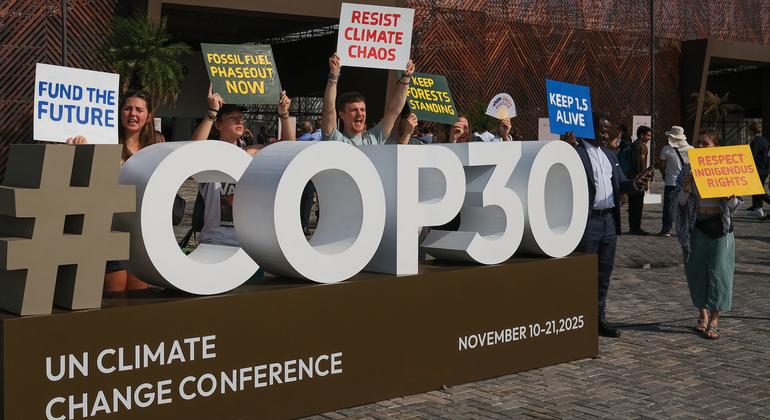Sure! Here’s the translation into American English:
—
In the heart of the Amazon, Belém was the setting for a key day at COP30, dedicated to Health Day. International leaders emphasized the inseparability of human health and the health of the planet. During the Health and Climate Ministerial Meeting, Simon Stiell, Executive Secretary of the UN for Climate Change, urged a shared responsibility to care for both.
The event included the launch of the Belém Action Plan for Health, a joint effort by the Government of Brazil and the World Health Organization (WHO). This plan is based on three pillars: adaptation, equity, and climate justice, considered essential for building a resilient society. WHO Director-General Tedros Adhanom Ghebreyesus highlighted that the climate crisis is also a health crisis, underscoring the need for robust health systems to protect populations from the adverse effects of climate change.
This new plan aims to accelerate practical solutions for countries to strengthen their health systems, promoting social inclusion and equitable access to essential resources.
Additionally, the World Meteorological Organization (WMO) presented the Framework and Toolkit for Extreme Heat Governance, to assist countries in preparing for and adapting to an increasingly warm climate. The WMO warned that extreme heat causes more than half a million deaths annually and led to a loss of 639 billion work hours in 2024, equivalent to a trillion dollars, about 1% of the global GDP.
In another significant launch, the UN Refugee Agency (UNHCR) introduced the Environmental Protection Fund for Refugees, which will finance projects led by refugees in several countries, such as Uganda and Rwanda. The goal is to restore over 100,000 hectares of land and provide clean energy to one million people. New initiatives are also being explored in Brazil and Bangladesh, including one in the Indigenous Land of São Marcos in Roraima, to protect fragile ecosystems and local livelihoods.
Finally, the United Nations Environment Programme (UNEP) presented the Food Waste Breakthrough initiative, which aims to halve food waste by 2030 with the intention of reducing methane emissions by 7%. UNEP Executive Director Inger Andersen lamented the amount of food wasted globally each year.
Thus, Belém stands as a symbol of the integration of health, justice, and climate action, essential elements for a sustainable and livable future for all.
Referrer: MiMub in Spanish











